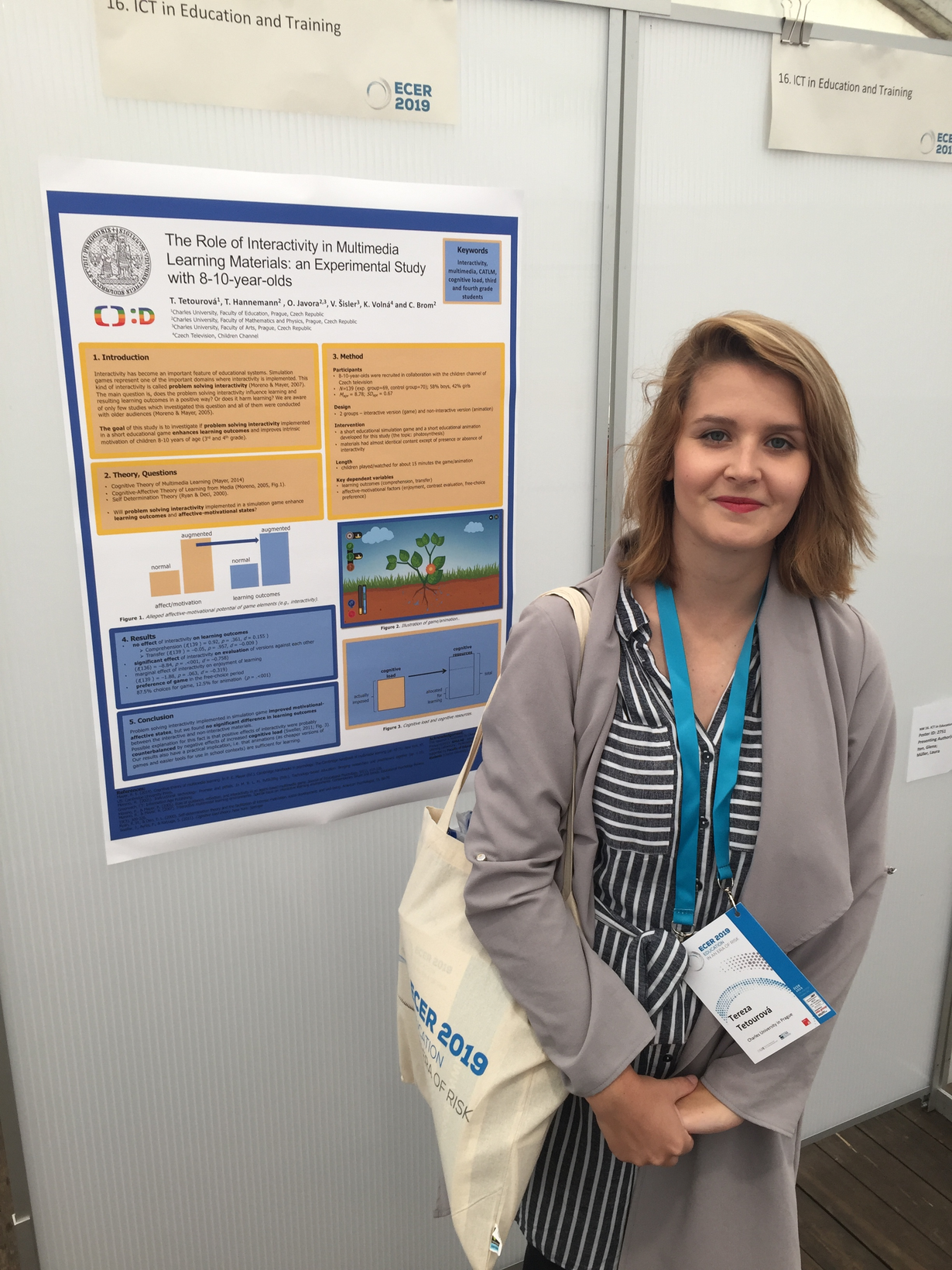Tereza Tetourová is a PhD student at the Faculty of Education (Department of Psychology), Charles University, Prague, and a member of Advanced Multimedia Learning Laboratory (led by Cyril Brom). She is interested in multimedia learning materials for normally developed children as well as for children with special needs (specifically with ASD).
Interactivity in learning environments has many forms. In our research, presented on the poster, we focused on problem solving interactivity within simulation videogames (i.e. interactivity connected to solving problems in educational games in an active way). Does this form of interactivity decrease or increase learning outcomes?
Only few previous studies investigated this question. Their results were mixed and, to our knowledge, none was conducted with children.
We hypothesized that the problem solving interactivity would enhance learning outcomes, and improve intrinsic motivation of third and fourth grade children (8-10 years old).
We developed an educational simulation game about photosynthesis and water transport process in plants, which featured problem solving interactivity. The alternative treatment was educational animation with the same content, but without the interactivity element (i.e. children just watched the animation).
In a between-subject-design study (N = 139; age: 8-10), we obtained interesting results: Interactivity had positive effect on motivational states, but we found no effect on learning outcomes. It is possible that the positive, motivational effect of interactivity was counterbalanced by higher cognitive load (which can be caused by problem solving interactivity). The practical implication of our study is that educational animations seem to be sufficient for learning, but games’ added value lies in increasing motivation.
The study has been conducted in collaboration with New Media Dramaturgy Center, Czech Television.
ECER Best Poster Award
The winner of the ECER Best Poster Award will receive a free entry to the following ECER.
